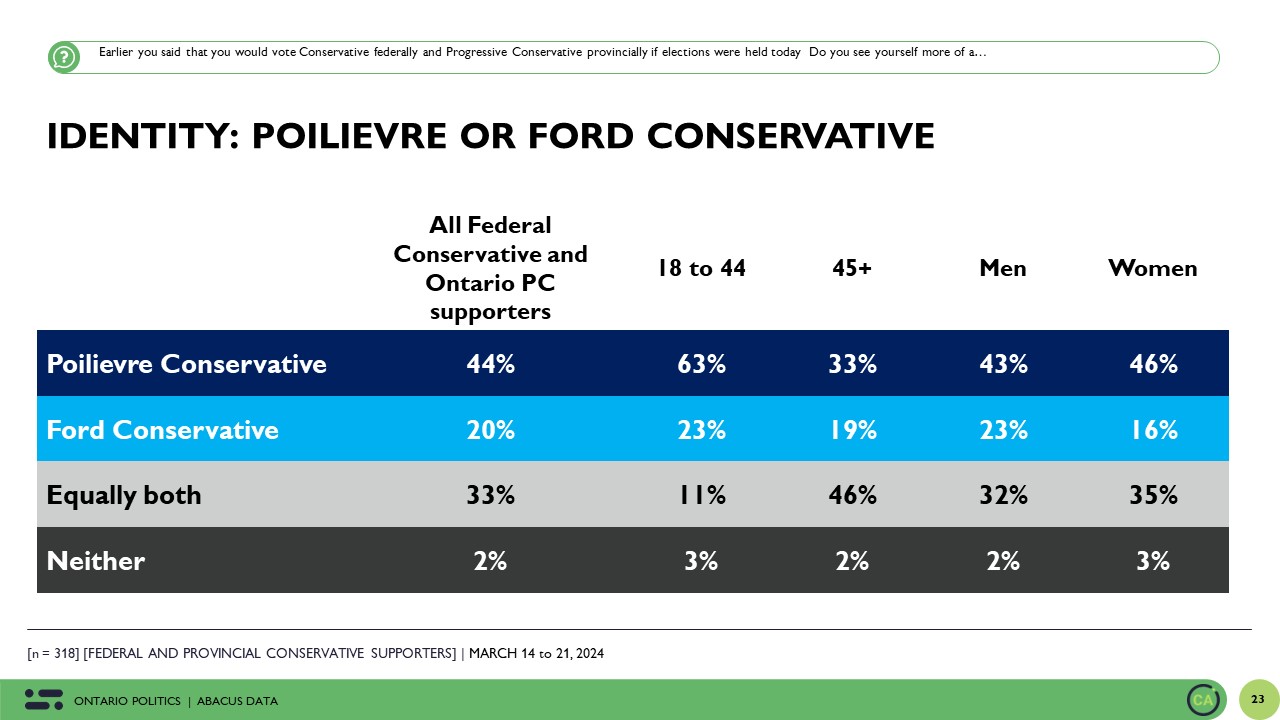Our Values & Our Money
November 27, 2015
Research Objectives
In June, Canada launched its first-ever National Strategy for Financial Literacy and the country is now examining how best to increase the financial knowledge and skills of Canadians.
On behalf of the Canadian Bankers Association, Abacus conducted an extensive nationwide study of Canadians’ financial aspirations and their know how when it comes to managing money in ways that will help them achieve their goals. This research is designed to explore the values, financial goals and priorities of Canadians of different ages and to get a better understanding of what financial issues they would like to know more about and where they go to look for information. This study is being widely released so that all financial literacy organizations can use the knowledge to properly evaluate their programs and ensure that they are reaching all generations in this digital age.
This is the second of a series of releases to highlight key elements of this fascinating study.
Where Money Fits in our Values System
In discussions of politics, it’s common to suggest that economic matters dominate the concerns of citizens, and that may be somewhat accurate in terms of what they want political leaders to focus on. However, when we probed for the level of importance that people attach to different values, we found that financial success is not quite at the top of the list for most people.
Instead, enjoying good health, being close with family, being kind and thoughtful, and being well respected form the top of the list of what’s important to people.
Another thing that is interesting in the results is that more people attach importance to the “simpler things in life” than do “the finer things in life”.
In short, the results suggest that the Canadian dream, if there is a common one, is not first and foremost a dream of financial gain, but about enjoying good relations with others and earning respect for the way you live your life.

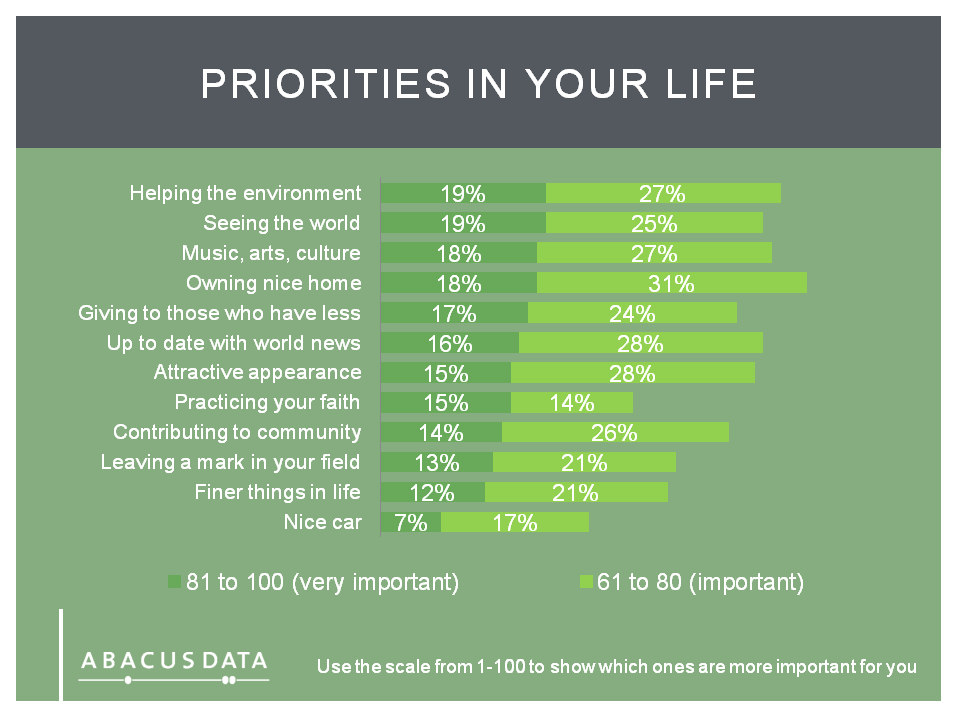
Are We Meeting our Goals?
We asked people, for each of the 23 items tested, how well they thought they were doing at meeting their goals. The results paint a country where most people feel they are meeting most of their goals. On the single most important value – maintaining good health – 27% said they were falling short of where they wanted to be. On being kind and thoughtful, and being close with family, less than 15% were unhappy with the way things were going.
The areas where the largest number of people said they were falling short of meeting their goals included seeing the world (50%), and taking the vacations they wanted (42%).
In terms of their financial success, 9% said they were exceeding their goals, 47% said they were meeting their goals, and 44% said they were falling short of meeting their goals.
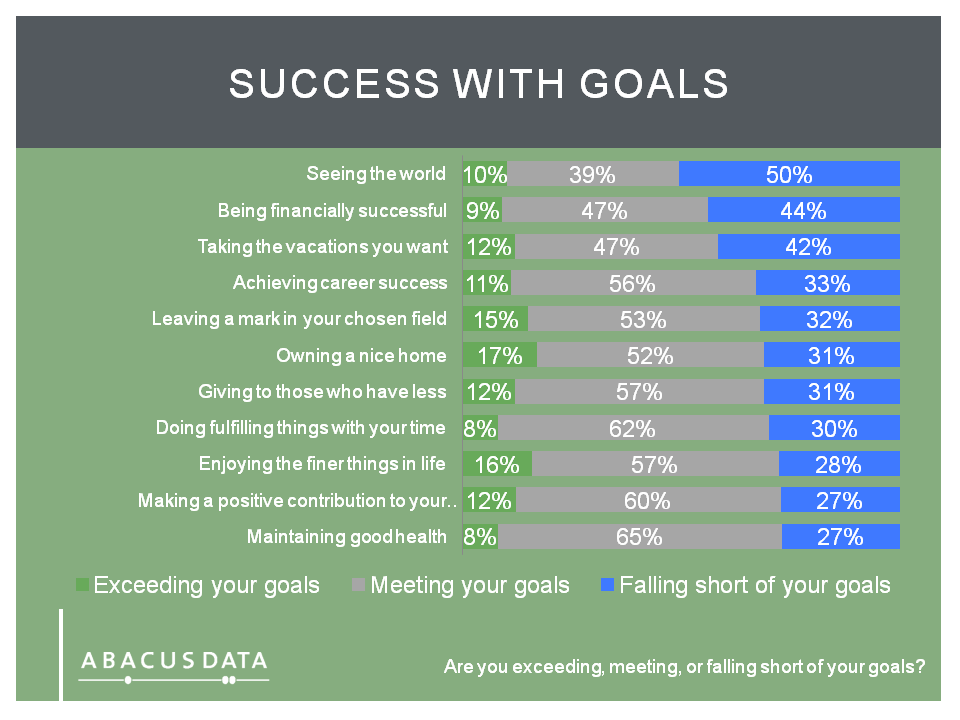
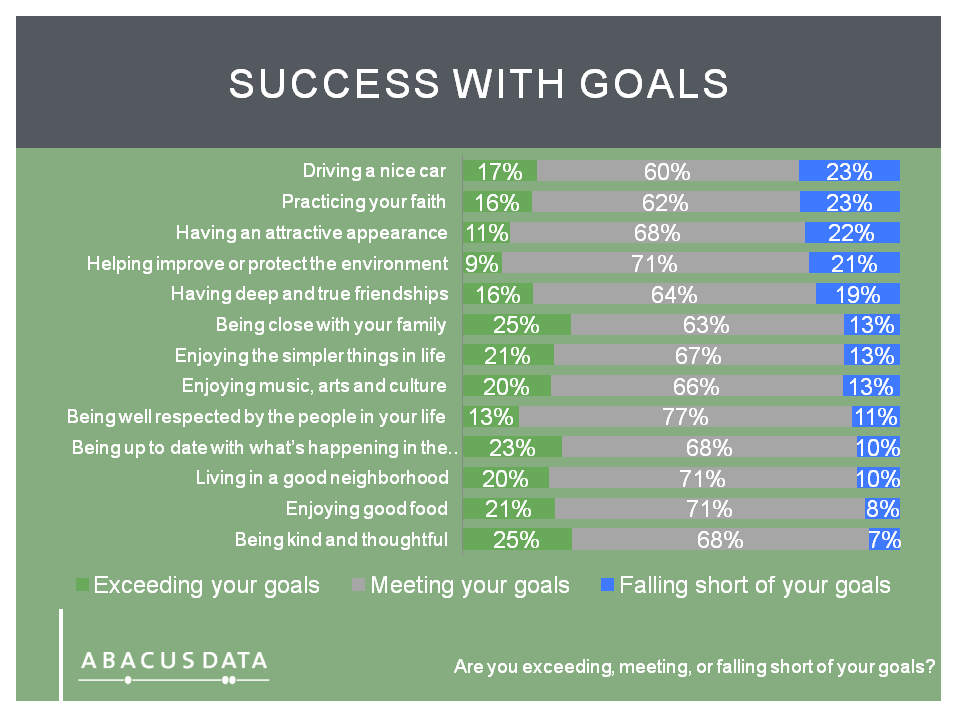
Are Generations Different?
One of the things we wanted to explore in this study was the question of how values differ by generation. When it comes to the list of 10 things that were most important of the list of 23 values tested, our analysis revealed that:
• Every generation attaches the highest importance to health, but the importance is stronger among older people.
• Older people attach greater importance to “being kind and thoughtful” enjoying “the simpler things” living “in a good neighborhood”, “giving to those who have less”, “keeping up to date with the world” and “making a positive contribution to the community”.
• Younger generations attach greater importance to being financially successful, “achieving career success”, “seeing the world”, “finer things in life”, and “leaving a mark in your field”.


When it comes to assessing how well people are achieving their goals, there are some differences across generations.
• Millennials who prioritize being financial successful are more likely to say they are falling short of their goals (50%) than Gen Xers (45%) or Boomers (33%).
• Those from younger generations who prioritize seeing the world are more likely to say they are falling short of their goals.
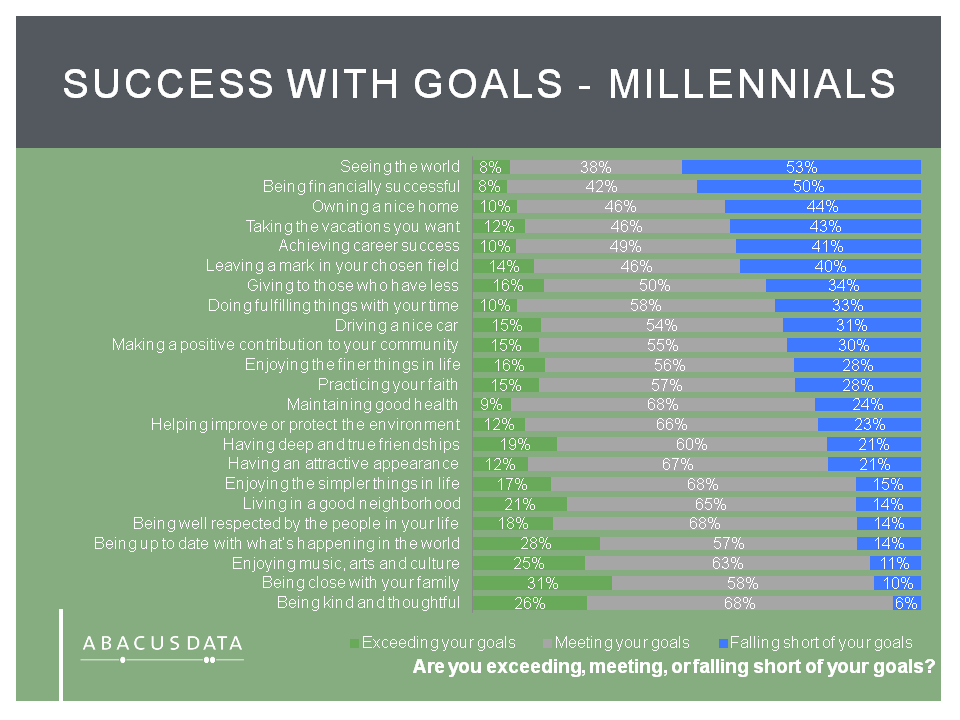
• Gen Xers are more likely to say they are falling short of their goals when it comes to taking vacations they want.
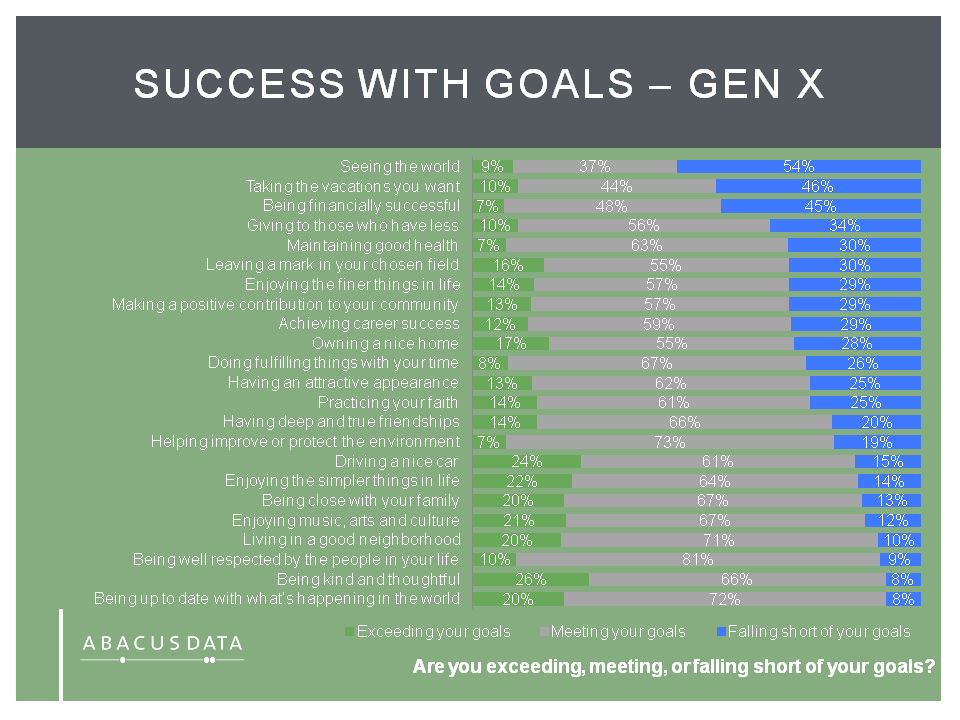
• Millennials are also less likely to say they are meeting their goals when it comes to owning a nice home, leaving a mark in their field, and achieving career success – all functions of a life cycle effect.
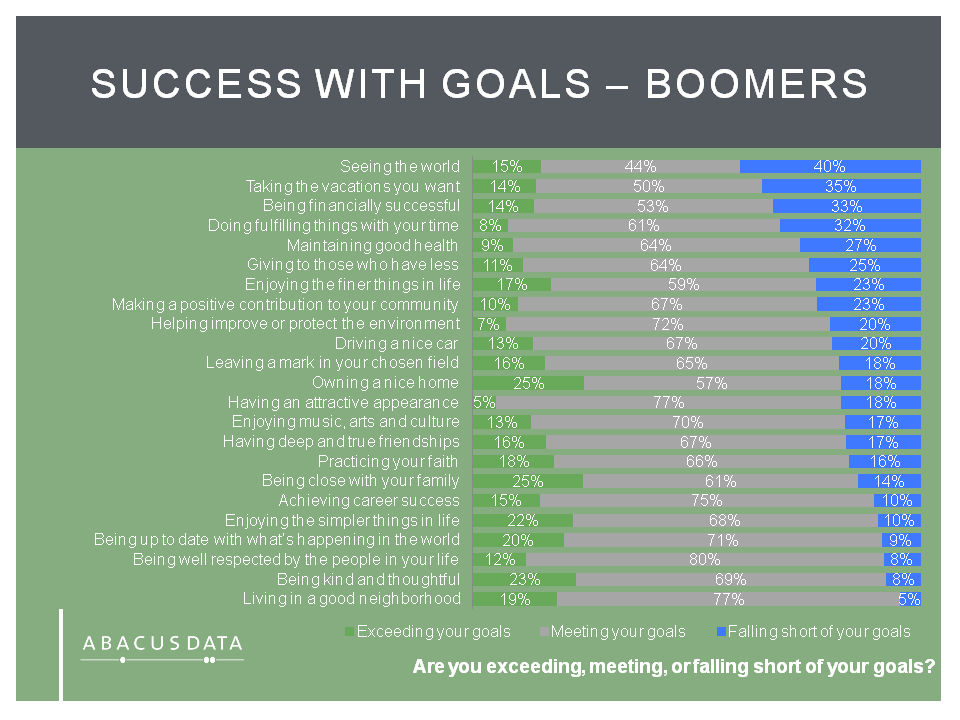
Methodology
The survey, commissioned by the Canadian Bankers Association, was conducted online with 1,978 Canadians aged 18 to 70 from April 10 to 21, 2015. A random sample of panelists was invited to complete the survey from a large representative panel of over 500,000 Canadians, recruited and managed by Research Now, one of the world’s leading provider of online research samples.
The Marketing Research and Intelligence Association policy limits statements about margins of sampling error for most online surveys. The margin of error for a comparable probability-based random sample of the same size is +/- 2.8%, 19 times out of 20. The data were weighted according to census data to ensure that the sample matched Canada’s population according to age, gender, educational attainment, and region. Totals may not add up to 100 due to rounding.
Abacus Data Inc.
We offer global research capacity with a strong focus on customer service, attention to detail and value added insight. Our team combines the experience of our Chairman Bruce Anderson, one of Canada’s leading research executives for two decades, with the energy, creativity and research expertise of CEO David Coletto, PhD.



